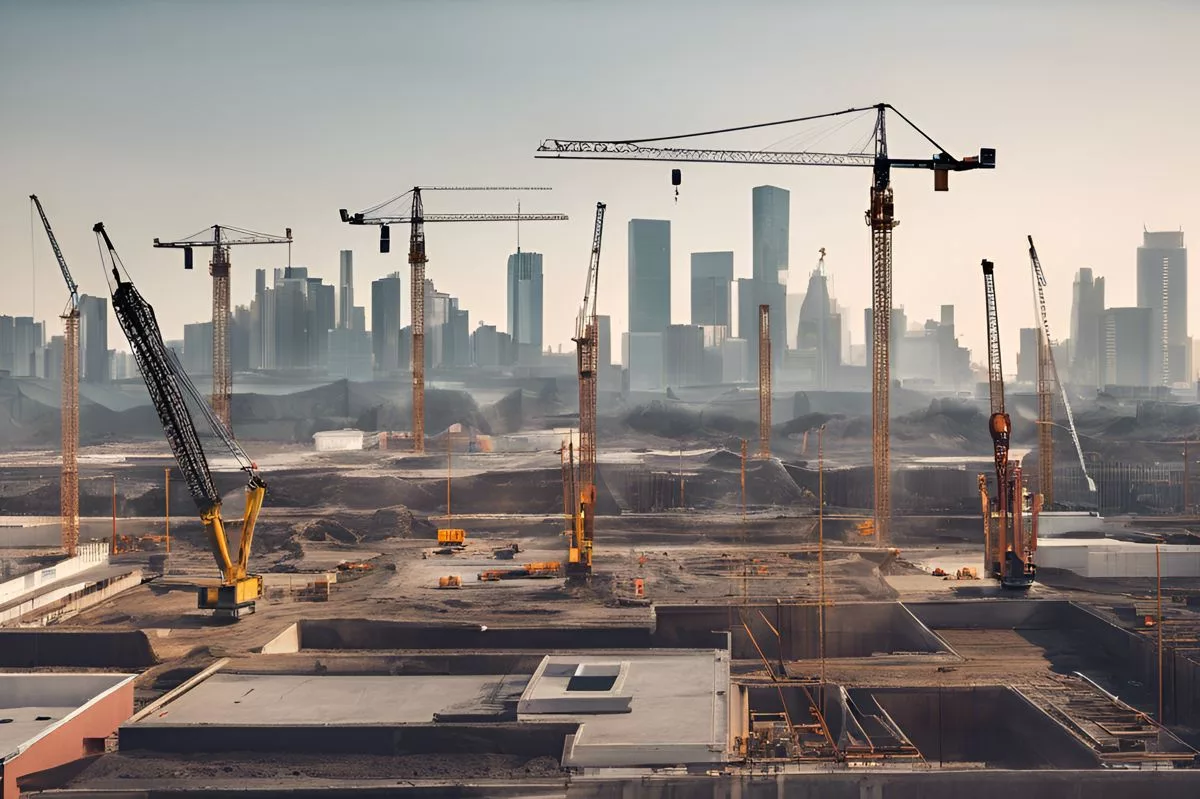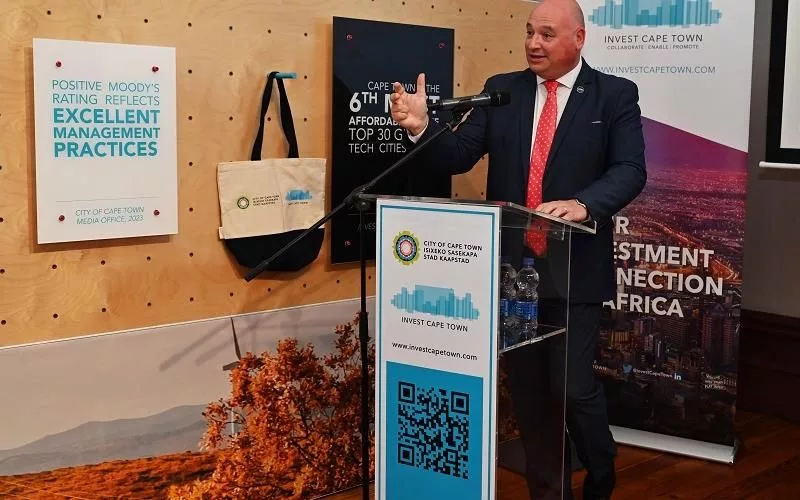The Sustainable Infrastructure Development Symposium (SIDSSA) is a platform for investment in South Africa’s infrastructure, with a focus on sustainable development. The 2024 symposium brought together a diverse group of participants, including President Cyril Ramaphosa, who emphasized the economic and societal benefits of infrastructure investment. South Africa is pursuing reforms to attract private sector funding and is implementing ambitious initiatives, such as a green hydrogen program. The country is also looking to broaden its infrastructure development beyond its borders through regional integration.
What is the Sustainable Infrastructure Development Symposium (SIDSSA)?
The Sustainable Infrastructure Development Symposium (SIDSSA) is an essential platform for invigorating more extensive investment in South Africa’s infrastructure. The assembly brought together a diverse group of ministers, sponsors, representatives, and esteemed participants with a unified aim to pledge to sustainable infrastructure advancement, not merely as a conduit for economic progression but also as an instrument for realizing societal development ambitions.
Setting the Stage for a Sustainable Future
In the bustling metropolis of Cape Town, within the walls of the Century City Conference Centre, a pivotal occasion transpired. The Sustainable Infrastructure Development Symposium (SIDSSA) 2024, a convention that has come to the fore as an essential platform for invigorating more extensive investment in South Africa’s infrastructure, witnessed a compelling keynote speech by President Cyril Ramaphosa.
The assembly brought together a diverse group of ministers, sponsors, representatives, and esteemed participants. Their unified aim was unmistakable: a pledge to sustainable infrastructure advancement, not merely as a conduit for economic progression but also as an instrument for realizing societal development ambitions.
Infrastructure, much like an artist’s stroke on a canvas, paints a dynamic economic landscape. As articulated by President Ramaphosa, it operates as a sizeable economic accelerator, with its benefits being felt long after the construction dust has cleared. The Symposium rose to prominence as a key feature in bridging South Africa’s infrastructure spending gap.
Envisaging and Financing A Sustainable Infrastructure
An impressive R1.6 trillion in public sector infrastructure investment is necessitated, along with an additional R3.2 trillion from the private sector by 2030 to bring the nation’s infrastructure goals to fruition. To realize these audacious objectives, a slew of audacious initiatives have been ignited.
South Africa is vigorously advocating reforms geared towards fostering sustainable infrastructure, enhancing business confidence, and luring investment. Such changes entail adjustments to the Division of Revenue Act, enabling provincial governments to deploy their infrastructure grants and budget allotments to draw in private sector funding for extensive social infrastructure ventures.
Mobilization and pooling of private-sector resources are also being stimulated through amendments to the Public Private Partnership regulations, expanding the avenue for infrastructure development. This strategic metamorphosis of the infrastructure landscape has spawned the growth of the nation’s Strategic Integrated Projects from R340 billion in July 2020 to R540 billion currently, a tribute to the effectiveness of these interventions.
Harnessing the Power of Innovation and Cooperation in Infrastructure Development
The energy sector, among the Strategic Integrated Projects, features the most extensive project pipeline, comprising transmission, gas, renewable, and green hydrogen initiatives. South Africa, with a daring green hydrogen program valued at R300 billion, is establishing itself as a pioneer in the green economy, striving towards a sustainable future propelled by innovation.
Conversely, human settlements have not been neglected. The portfolio has thus far generated over 38,000 direct employment opportunities, and approximately 9,000 housing units have been built. This accomplishment highlights the significance of project preparation, the heart of establishing a bankable and viable project pipeline.
In a tactical partnership with development finance institutions and multilateral development banks, Infrastructure South Africa is channeling efforts towards projects that stimulate job creation, endorse economic competitiveness and inclusivity, and integrate South Africa into global supply chains.
These endeavours, recognized as the top 12 priority infrastructure projects, are expected to yield over 400,000 jobs, both direct and indirect, throughout their construction and operational phases. The projects range from special economic zones and energy security to the green economy and rail and port advancement.
Strengthening Public Sector Capacity and Broadening Regional Infrastructure Development
To further escalate the public sector’s capability, Infrastructure South Africa has commenced the publication of a Construction Book. It exhibits 153 infrastructure projects across five major state-owned enterprises, epitomizing the government’s aspiration to stimulate economic development via the construction industry.
Nevertheless, the scope of ambition extends beyond South Africa’s frontiers. The development and assimilation of the African continent also necessitate a colossal investment in infrastructure, inclusive of regional infrastructure.
Despite a wide-ranging political consensus on the demand for infrastructure integration, the advancement on implementing regional and continent-wide infrastructure has been sluggish. The inaugural Leaders Forum Meeting convened by Minister Sihle Zikalala is projected to infuse new impetus into regional and continent-wide projects, encouraging resource sharing for project preparation, execution, finance, and private-sector involvement.
In summary, the Sustainable Infrastructure Development Symposium has had a pivotal role in the upswing of infrastructure investment in South Africa. It has laid the foundation for the future, chiseling a road towards realizing enhanced economic growth, development and social equity in South Africa.
1. What is the Sustainable Infrastructure Development Symposium (SIDSSA)?
The Sustainable Infrastructure Development Symposium (SIDSSA) is a platform for investment in South Africa’s infrastructure with a focus on sustainable development. It brings together a diverse group of participants, including government officials, sponsors, and representatives, with a unified aim to pledge to sustainable infrastructure advancement.
2. What is South Africa doing to attract private sector funding for infrastructure?
South Africa is pursuing reforms to attract private sector funding for infrastructure, including adjusting the Division of Revenue Act to enable provincial governments to deploy their infrastructure grants and budget allotments to draw in private sector funding. The country is also mobilizing and pooling private-sector resources through amendments to the Public Private Partnership regulations, expanding the avenue for infrastructure development.
3. What is South Africa’s green hydrogen program?
South Africa has a daring green hydrogen program valued at R300 billion, which is establishing itself as a pioneer in the green economy, striving towards a sustainable future propelled by innovation. The program is part of the Strategic Integrated Projects, which features the most extensive project pipeline in the energy sector, comprising transmission, gas, renewable, and green hydrogen initiatives.
4. How is Infrastructure South Africa channeling efforts towards job creation and economic competitiveness?
In a tactical partnership with development finance institutions and multilateral development banks, Infrastructure South Africa is channeling efforts towards projects that stimulate job creation, endorse economic competitiveness and inclusivity, and integrate South Africa into global supply chains. These projects are recognized as the top 12 priority infrastructure projects and are expected to yield over 400,000 jobs, both direct and indirect, throughout their construction and operational phases.
5. How is South Africa broadening its infrastructure development beyond its borders?
South Africa is looking to broaden its infrastructure development beyond its borders through regional integration. The inaugural Leaders Forum Meeting convened by Minister Sihle Zikalala is projected to infuse new impetus into regional and continent-wide projects, encouraging resource sharing for project preparation, execution, finance, and private-sector involvement.
6. What is the Construction Book published by Infrastructure South Africa?
Infrastructure South Africa has commenced the publication of a Construction Book to exhibit 153 infrastructure projects across five major state-owned enterprises, epitomizing the government’s aspiration to stimulate economic development via the construction industry. The book aims to strengthen public sector capacity in infrastructure development.










